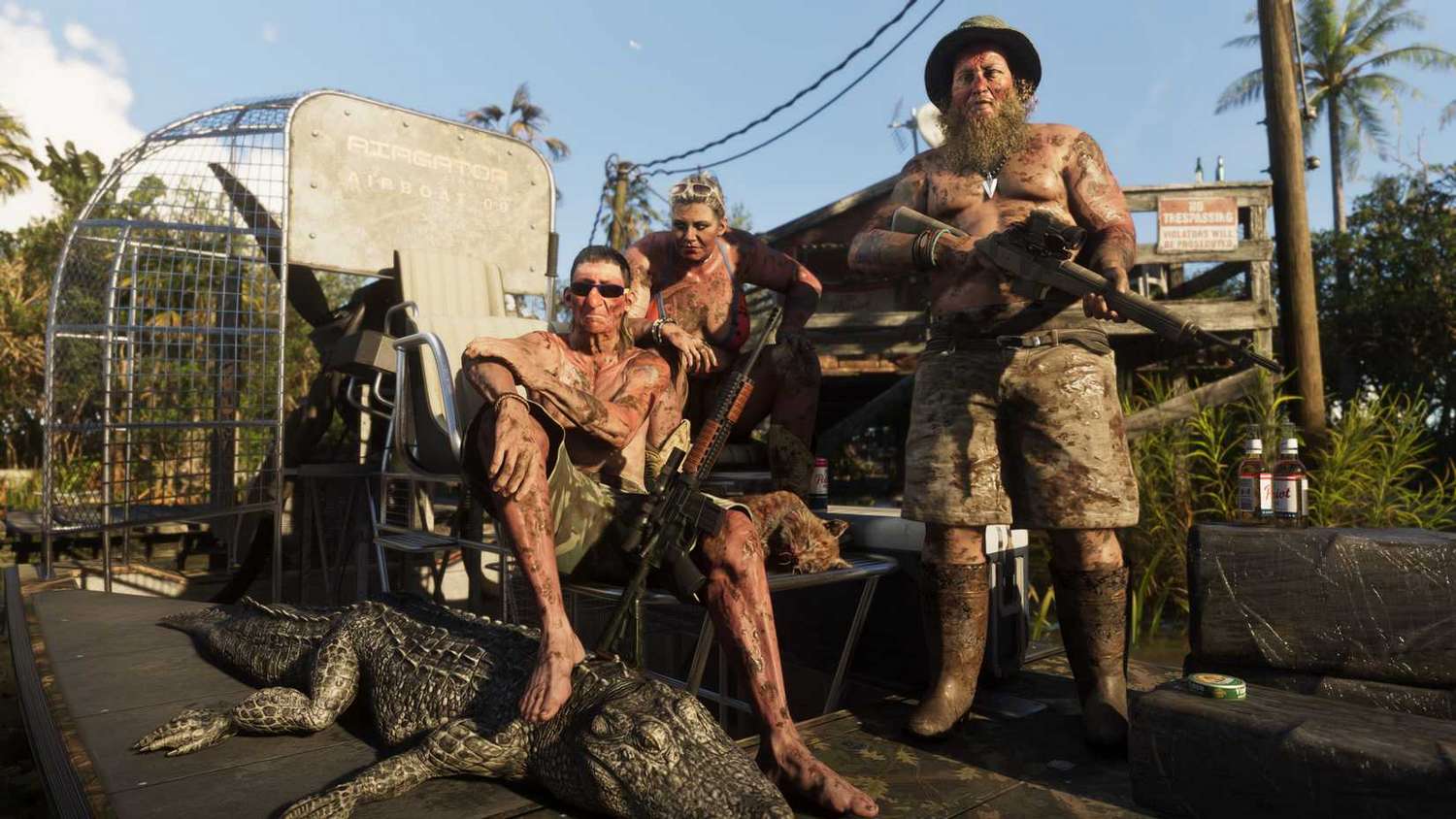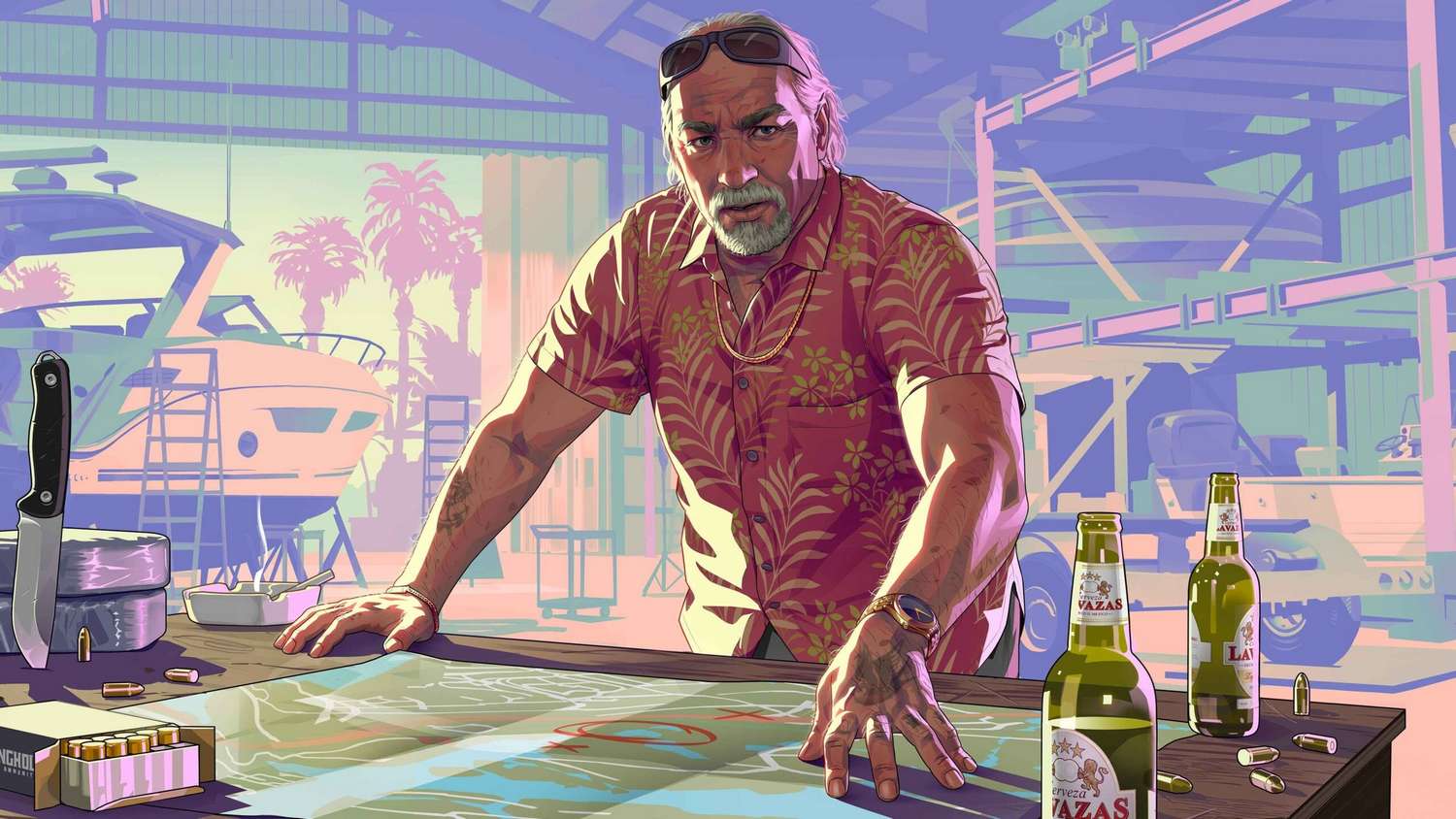Rockstar Games Layoffs Spark Union-Busting Row Weeks Before Crucial GTA 6 Development Phase
Popular Now
 Brawl Stars
Brawl Stars
 Black Myth: Wukong
Black Myth: Wukong
 Poppy Playtime
Poppy Playtime
 Stumble Guys
Stumble Guys
 God of War Ragnarök
God of War Ragnarök
 CarX Street
CarX Street
 Roblox
Roblox
 Candy Crush Saga
Candy Crush Saga
 Free Fire Max
Free Fire Max
 Grand Theft Auto V
Grand Theft Auto V 
The volatile landscape of the video game industry has been rocked once again, this time by actions at one of its most lucrative and closely-watched studios. Rockstar Games, the developer behind the blockbuster Grand Theft Auto franchise and the highly-anticipated GTA 6, has recently confirmed the termination of dozens of staff members across its UK and Canadian offices. This move, which comes during the critical final stages of GTA 6 development, has ignited a fierce public dispute, with a prominent trade union labeling the dismissals as a “ruthless act of union busting.”
The news, initially reported by Bloomberg and confirmed by the Independent Workers’ Union of Great Britain (IWGB), details the abrupt dismissal of approximately 30 to 40 employees on Thursday, October 30, 2025. This group reportedly included individuals who were either active members of the IWGB or involved in private discussions about forming a union within the company—a clear attempt to address working conditions often characterized by high-pressure environments and the threat of “crunch culture.”
The Corporate Stance: Gross Misconduct or Strategic Retaliation?
In a swift and sharp rebuttal to the union’s claims, Take-Two Interactive, the parent company of Rockstar Games, issued a statement denying any connection between the firings and union activity. A spokesperson for Take-Two maintained that the employees were terminated solely for “gross misconduct.” However, the company has declined to provide specific details regarding the nature of this alleged misconduct, fueling speculation and outrage within the developer community.
The timing of these Rockstar Games Layoffs is particularly scrutinizing. With the projected release of Grand Theft Auto VI scheduled for May 26, 2026, the studio is entering the most intensive phase of development—the final push for bug-fixing, optimization, and polishing that defines the quality of high-budget titles. Industry analysts and former developers have expressed concern that losing experienced personnel, especially those in Quality Assurance (QA) and support roles—positions often affected by such cuts—could potentially disrupt the development pipeline or impact the final product’s quality.
The IWGB’s Game Workers Union has escalated its response, stating that the firings are “unlawful and retaliatory.” The union highlights the vulnerability of the dismissed staff, particularly those on sponsored visas or relying on workplace healthcare schemes, who now face significant personal and professional upheaval. The union has publicly vowed to fight for the reinstatement of every member, potentially setting the stage for a prolonged legal battle that will put the spotlight squarely on labor rights within the global video game industry.
Analyzing the Broader Context: Labor Tensions in Next-Gen Gaming
The controversy surrounding Rockstar Games is not an isolated incident but rather a sharp reflection of the escalating labor tensions defining the era of next-gen gaming. The demand for complex, massive open-world titles like GTA 6 has consistently pushed development teams to their limits. While Rockstar made headlines in recent years for reportedly improving its culture following the contentious development of Red Dead Redemption 2, the recent mandates for a full-time return to the office—a decision justified by the company for “productivity and security” reasons—had already stirred significant internal dissent.
 This mandatory return to the office, announced earlier this year, was heavily criticized by staff who cited a loss of work-life balance and difficulty managing personal and health issues. The unionization efforts are widely seen as a direct consequence of employees seeking a collective voice to counter these top-down corporate decisions.
This mandatory return to the office, announced earlier this year, was heavily criticized by staff who cited a loss of work-life balance and difficulty managing personal and health issues. The unionization efforts are widely seen as a direct consequence of employees seeking a collective voice to counter these top-down corporate decisions.
The Business Imperative: Profit vs. People in High-Budget Titles
From a pure business perspective, the decision to streamline operations, even with a successful product like GTA 6 on the horizon, aligns with broader cost-cutting measures implemented by many large publishers, including Take-Two, who announced a layoff of approximately 5% of its workforce in April 2024. However, the optics of dismissing employees linked to union activity just months before a product launch estimated to generate billions in revenue raises serious ethical questions.
- Stakeholder Confidence: While the financial markets tend to reward cost reduction, the ethical fallout from union busting claims can affect brand reputation and long-term Talent Acquisition. High-profile developers may be less inclined to join a studio embroiled in a labor dispute.
- Development Risk: Any disruption in the QA and support departments during the final polish phase introduces a risk factor for the game’s release date and quality. The GTA 6 project is simply too crucial to the future of Take-Two Interactive to absorb unnecessary internal friction.
- Legal Precedent: The outcome of the IWGB’s fight for the fired workers could set a significant legal precedent for how unionization attempts are handled across the UK and possibly the global Game Development landscape.
Grand Theft Auto VI remains one of the most anticipated media properties in history. The sheer scale and expected financial success of the title—projected to be a major profit driver for years—underscore the immense pressure on Rockstar Games to deliver flawlessly. The tension between achieving peak performance under corporate scrutiny and ensuring a fair and sustainable working environment for developers is now playing out in the public eye.
Industry-Wide Implications: The Future of Developer Labor
The conflict at Rockstar Games serves as a stark reminder of the chronic instability and precarity of jobs in the modern video game industry. Despite record profits, waves of layoffs have become commonplace as major corporations seek to optimize balance sheets. The pursuit of unionization—a movement gaining rapid traction across tech and creative sectors—is a direct response to these pressures.
The Review Perspective: Will This Affect GTA 6’s Quality?
From a player’s perspective, the primary concern revolves around whether this internal conflict will manifest in the final product. The roles affected in the recent Rockstar Games Layoffs are critical for the detailed refinement necessary for a massive, open-world experience. Games like Grand Theft Auto VI are built on thousands of small interactions and systems that require extensive QA testing.
Strong QA teams are the last line of defense against bugs, glitches, and poor optimization. A weakened or demoralized QA department could inadvertently contribute to a less polished launch experience. While Rockstar Games has vast resources, the institutional knowledge and domain-specific expertise lost in the dismissals are not easily or quickly replaced.
 The studio’s reputation for delivering industry-defining quality is a major factor in the high GTA 6 hype. Any perception of a compromised development process could temper the enthusiasm that has driven record pre-order projections. Ultimately, the industry, investors, and gamers will be watching closely to see if Rockstar Games can navigate this severe labor dispute without impacting the eventual, and highly profitable, launch of Grand Theft Auto VI.
The studio’s reputation for delivering industry-defining quality is a major factor in the high GTA 6 hype. Any perception of a compromised development process could temper the enthusiasm that has driven record pre-order projections. Ultimately, the industry, investors, and gamers will be watching closely to see if Rockstar Games can navigate this severe labor dispute without impacting the eventual, and highly profitable, launch of Grand Theft Auto VI.
- Key Watch Areas:
- IWGB’s legal action and its potential ramifications.
- Any further statements or leaks concerning the alleged “gross misconduct.”
- Future updates or delays to the GTA 6 release schedule.
- The impact on developer morale and internal team stability as the 2026 launch approaches.
This ongoing situation underscores the necessity for greater transparency and consultation between management and development staff in an industry that generates enormous revenue but frequently fails to provide consistent job security or fair labor conditions. The fight at Rockstar Games is not just about the development of a single game; it is a battle for the fundamental rights of Game Development professionals globally.








